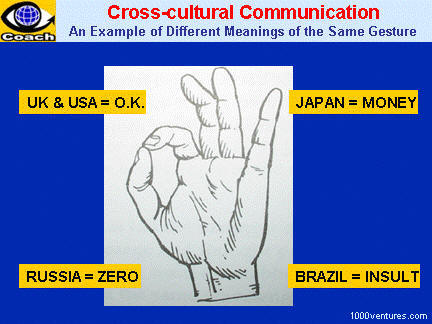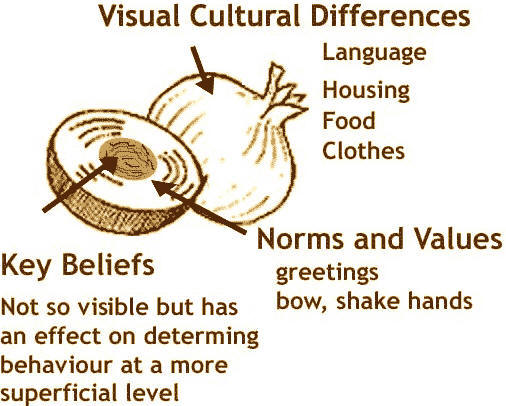 Cultural
differences:
Cultural
differences:
When Yes = No
How you can get very
confused - AND create problems without even knowing it!
Your new
country isn't your old country. How people behave and
respond can be quite different. A "lesson" follows . .
.
When "Yes"
is better than "No"
Western-style assertiveness is not so common in the much
of the world. A story to illustrate: In the summer of
1993, I was teaching at a university's summer program
(socking away a little extra cash while I was on a long
paid vacation from my college!). The weather was very
hot and sweaty - and the classrooms had no air
conditioning. And I mean HOT and SWEATY - we were
soaking with sweat.
A Coffee
Shop
The students
suggested that we have our class across the street in an
air-conditioned coffee shop - a great idea! Only about
eight students in the class, so we would easily fit in a
big corner booth. I asked the supervisor if it was okay
- and he said, "Yes." A few minutes later he said, "So
you are not having class today?" I replied, "Of course
we are, we are going to meet in the coffee shop - as the
students requested. That's okay, isn't it?" He said,
"Yes."
A few
minutes later he - again - said, "So you are not
having class today?"
Well . . .
we went through this cycle several times before I got a
bit upset and told the supervisor, "If you don't want us
to meet at the coffee shop - just SAY 'NO'!" Needless
to say, everyone was upset. But, it didn't need to be
that way - I really should have picked up on it the
first time - or at least the second time the supervisor
asked if I was not having class.
Get it?
Many
cultures are not as direct as our own - they can be
quite subtle if you aren't used to looking for the
clues. You'll need to pay attention and listen for
underlying content - all the time! You can make your
coworkers and supervisor very uncomfortable if you make
them confront you, or if you become confrontational. It
can really stress your relationships and sour your work
situation. Be careful, listen, interpret.
If you
really don't understand and/or are frustrated . . .
Ask your
supervisor in the context of a culture question. You
can say, "I am a bit confused here. In my culture my
boss would say '[fill in the blank]' - are you wanting
me to '[do or not do something]?' Please help me
understand." Ask this with a sincere look on your face,
or even better - with a friendly smile. This kind of a
statement takes the heat off the situation - and saves
"face" for everyone involved. You can even have a good
laugh about it - instead of everyone being upset.
Develop a
little finesse
in dealing
with cross cultural communications - and your life will
go much smoother overseas! It's all part of learning to
be a skilled expatriate.



